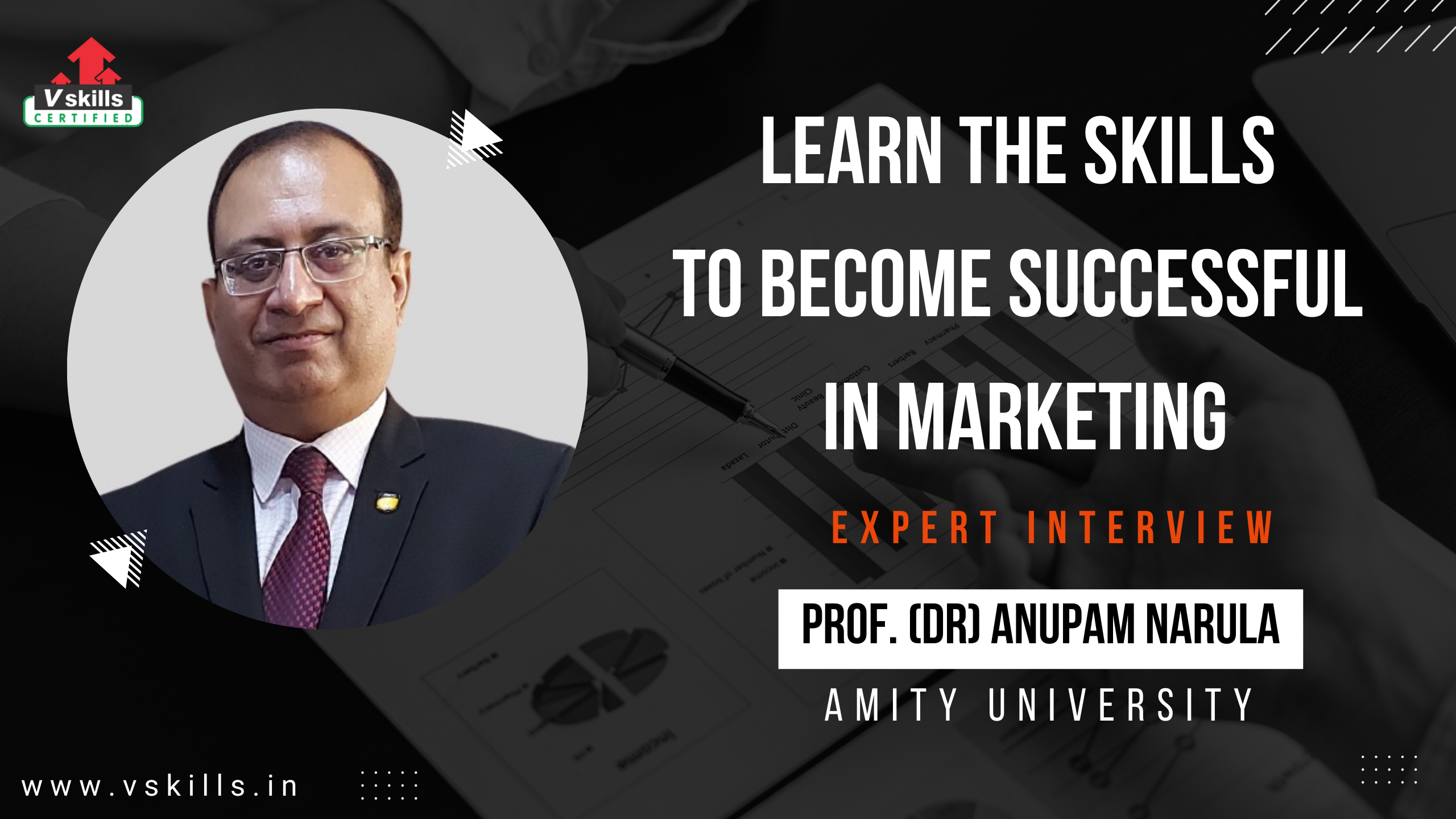Prof. (Dr) Anupam Narula is a Professor, Trainer, and consultant in Consumer Behavior, Service Marketing, International Marketing, Digital Innovation strategy, Branding Strategy, and Higher Education at Amity University Uttar Pradesh, Noida Campus, India. He is also spearheading the Alumni Relations of Amity University Noida, Lucknow, Greater Noida, and Tashkent campuses as Dy. Director (Alumni Relations). Before this, he served as Faculty of Marketing, Area Chair-Marketing, and Professor-in-Charge (Alumni Relations) at FORE School of Management, New Delhi. A consistent first-class holder, he has done a Ph.D. in Economics, PGDM in Marketing (Silver Medalist), and M.A in Economics. He has to his credit a Certificate of Marketing, from Nanyang Business School, NTU, Singapore.
He is an IVEY Business school, in Ontario Canada trained faculty in the Case of teaching and Writing techniques. He has a total professional experience of more than 27 years in teaching, training, research, and consulting. He started two Business schools in the Delhi-NCR region in 2004 and 2008 and traveled extensively in more than 20+ countries all around the globe for various academic and research collaboration endeavors. He has presented 22+ research papers at various reputed international and national conferences at the University of Nevada, Las Vegas, IIM Ahmedabad, IIM Indore, ISB Hyderabad, Great Lakes Chennai, IIT Delhi, etc. He also published 30+ research papers in peer-reviewed indexed journals and edited books, 45+ contemporary research articles in Brand Equity, Business World, Education times, The Hindu, Financial Express, Business Standard, etc., and 13+ working papers under the aegis of FORE School of Management, New Delhi.He has conducted several MDPs, FDPs, Executive Education Programs, and Consulting assignments for corporates like TATA chemicals Ltd, IRCTC, MTNL, Mahagun Group, Relaxo Footwear, Tata Pigments Ltd, Indian Army, and many more.
1. With so much experience and exposure, how would you define your journey so far?
“The Only Constant in Life Is Change” and one must be agile to move with time.
It has been a nice enriching academic journey so far and working with premier business schools in India and abroad has given me a lot more exposure and learning. I started my professional journey after completing my two postgraduate degrees in the sales field and then the transition happened towards the academic field in 1998, since then I’ve been associated with the higher education sector as an educator, trainer, and consultant. The desire to upskill led me to pursue &complete my Ph.D. in 2008 which helped with new learnings and gave a boost to my career. When I look back, I have groomed more than 8000 students, including corporates and government employees in my education career. I have worked with almost every premier business school and university in the Delhi-NCR region either as faculty, trainer, consultant, or an academic expert on the Area Advisory Boards or as Ph.D. Expert. I have taken calculated risks by coming out of my comfort zone every time and exploring opportunities in the market for professional growth. Ifirmlybelieve “Opportunities don’t happen, you have to create them and must be responsible enough to make the best use of them”.
“The Only Constant in Life Is Change” and one must be agile to move with time. This ever-changing higher education sector demands constant upskilling to cope with the fast-changing market trends. I ensure constant learning through professional networking with all stakeholders- especially with the corporates, government bodies, accreditation bodies, and alumni.
2. Why is the gig economy growing and how should we prepare for it?
Several reasons contribute to the growth of the Gig economy. It is a win-win situation for workers as well for employers. The millennials seem to prefer freelancing over full-time employment due to its flexibility and independence. It has created better opportunities for finding more work across the globe and made work more adaptable to the changing needs and demands for flexible lifestyles. With Gigs, freelancers can make lifestyle choices that a conventional job would not allow. They can choose when and where to work and at the same time determine how much they will charge for their services.
Indians need supplemental income due to the increasing cost of living, growing aspirations of students, and changing mindsets of women engaged in homemaking.Companies benefit from having a flexible workforce; they are spending less on training or recruitment, need not pay for any medical coverage, and can more easily replace their workforce if needed. Contracted workers are more cost-effective for businesses and employers are benefiting from a wider range of applicant pools to choose from, also, they don’t necessarily need to hire one based on one’s proximity.
The Higher education institutions (HEIs) must prepare the Alpha generation to succeed in the future Gig economy to be self-employed, entrepreneurial, and to successfully run a new venture because increasingly, that’s what each of Gen Alpha will do for at least some part of their careers. HEIs must teach them short-term practice-oriented courses to work independently with adaptability and resilience skills for uncertain times, and social and emotional skills to thrive in the new disruptive world. Gen Alpha is required to be trained for the increasinggig jobs of tomorrow and not the traditional jobs of yesterday.
3. How have marketing trends shifted from ‘Word Of Mouth’ To ‘Word Of Mouse?
The world is changing, and technology is taking the lead. Today, everything is going digital which means companies are also going online to market their products and services. And to survive the challenges of digital marketing (Word of Mouse), brands need to keep up with the latest trends. These days, social media is the new arena of digital marketers, as 4 billion people use social media each month, or 50% of the total global population. Moreover, it’s growing: every day, one million people, try social media for the first time. Social media has become so ingrained in the way people communicate and live; it will be challenging for people to not use social media in one way or another. Facebook, YouTube, Twitter, Instagram, LinkedIn, and many other platforms have become a significant part of people’s lives of all generations, around the world. The average daily time spent on social networking by internet users worldwide amounted to 145 minutes per day and Indian users spent in line with the global average.
An effective social media strategy requires organizations to identify the right target audience and to research where the audience hangs out online and what message will resonate with them. Social media is now real-time, immediate value-add information and will take the business to new levels faster than ever. Each social media site has different user demographics, and psychographics, and the content must be reshaped to match perfectly with the platform on which it will be posted.
Nonetheless, the technology not only provides a more efficient, responsive, and customized way to deal with customers; but it is also more cost-effective.
4. What advice would you like to give to freshers who wish to pursue a career in Marketing?
“The Network is your Net worth in the Modern Marketing Industry”.
My advice to all the freshers is to pay special attention to your behavioral and soft skills to pursue a career in marketing. Technical knowledge can be gained at any point but being well-spoken, empathetic, and kind towards your customers goes a long way in defining your organization’s customer’s Lifetime Value and your personal branding as a marketing professional.
The next most important aspect ofthis profession is ‘Networking’. This is a great way to meet people in your marketing career. Try to find and attend marketing meets, conferences, and get-togethers. This will not only help you find potential job leads, but it will also give you a pool of experienced marketing people from whom you can learn and better understand the skills you’ll need. If possible, find a highly experienced marketer to become a mentor who can give more personal help and recommendations.
5. What are the 5 most important skills required to excel in this field?
Modern marketing is very different from traditional marketing with digital strategies playing a significant role and traditional methods becoming less relevant and less effective. That means that while certain skills associated with the field (such as creativity and communication) are certainly still important and applicable, there are a whole host of other, newer skills that are required to excel in this field.
The five most important skills are creativity &problem-solving, communication skills (verbal & written), Interpersonal skills, adaptability, and leadership skills.All these skills can be built through dedicated training and education and continuous improvement in the above five skills will make you a better marketer and more employable in the industry.
6. What is the quotation you live by your life?
“If we change with change we will survive.
If we anticipate change, we will succeed,
If we can influence change, we will excel!!”

Prepare with Job Interview Questions
If you are a marketing professional and having a job interview, then you must checkout these interview questions designed by experts based on recent interviews conducted in different companies.




